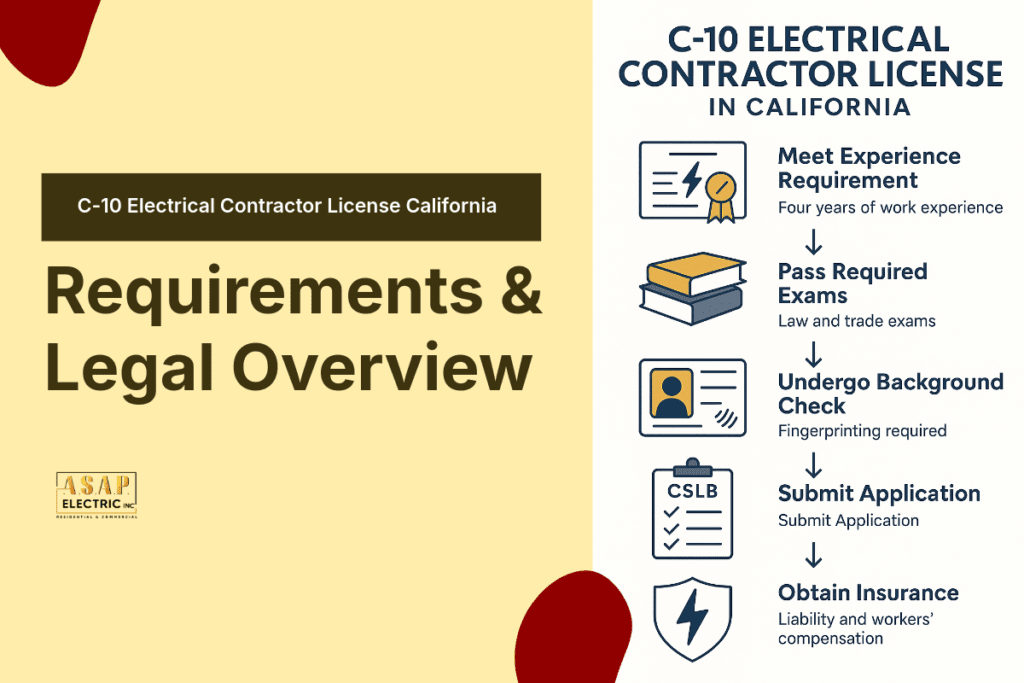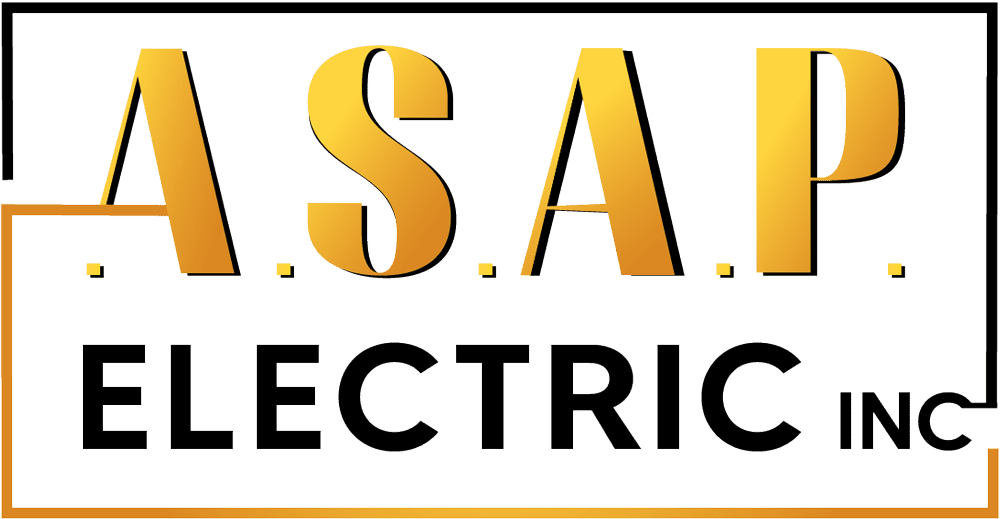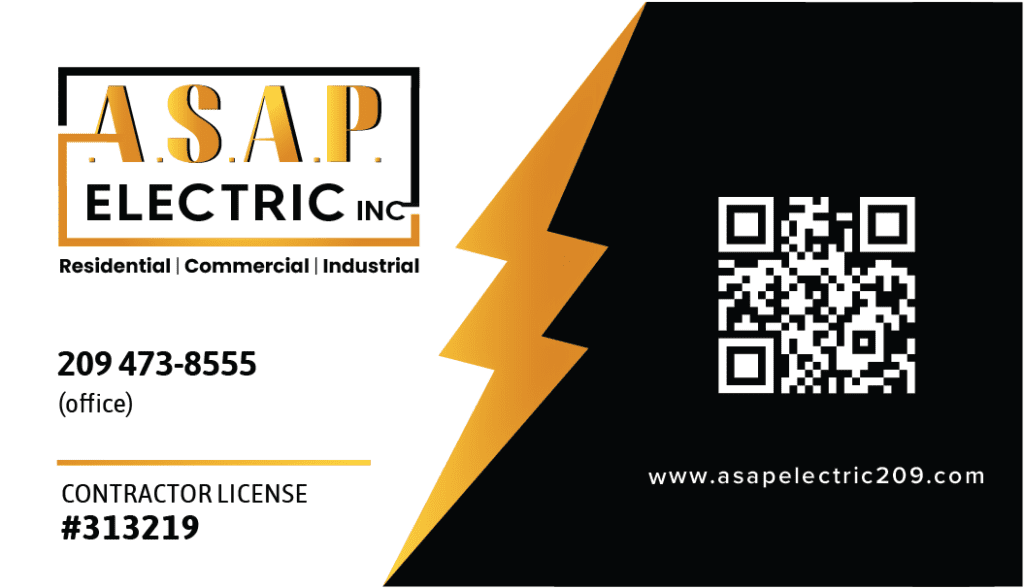Understanding the C10 Electrical Contractor License: What It Is and Why It Matters
In California’s highly regulated construction and trade environment, not all contractor licenses are created equal—especially when it comes to electrical work. The C-10 Electrical Contractor License is a specialized classification issued by the California Contractors State License Board (CSLB) that allows contractors to legally perform electrical services. Whether you’re a tradesperson, general contractor, or property owner, understanding what the C-10 license is—and why it matters—is essential.

⚡ What Is a C10 Electrical Contractor License?
The C-10 Electrical Contractor License is a license classification issued by the CSLB that authorizes a contractor to install, maintain, and repair electrical wiring, systems, and fixtures in California.
This includes everything from wiring a new home to upgrading commercial electrical panels and installing lighting or solar arrays.
🧰 Who Needs a C10 License?
Starting January 1, 2025, the minimum contract value that requires a license will increase from $500 to $1,000, but only for projects that do not require a permit and do not involve employees. This change allows very small-scale, low-risk jobs to be performed without a CSLB license—but most electrical work still requires a C-10 license, especially if permits or safety inspections are involved.
This applies to:
- Self-employed electricians
- Electrical contractors bidding on projects
- General contractors outsourcing electrical work (unless subcontracted to a C-10 holder)
Unlicensed electrical work above this threshold is illegal in California and can carry steep financial and legal consequences.


🛠️ What Work Can a C-10 Licensed Contractor Perform?
A C-10 license holder can legally perform the following types of work:
- Electrical wiring installation and repair (residential & commercial)
- Circuit breaker and electrical panel upgrades
- Interior and exterior lighting installations
- Solar energy system wiring
- Emergency electrical repairs
- Code compliance corrections
This license also covers work involving underground systems, conduit runs, and wiring in hazardous locations, which are regulated under the National Electrical Code (NEC) and California Building Standards Code.
🆚 C-10 vs. Other Contractor Licenses
Not all contractor classifications are qualified to perform electrical work. Here’s how the C-10 compares:
License Type | Can Perform Electrical Work? | Notes |
C-10 | ✅ Yes | Fully authorized for all electrical contracting |
Class B (General Building Contractor) | ⚠️ Limited | Only incidental electrical work related to a larger project |
C-46 (Solar Contractor) | 🚫 No (Limited) | Cannot legally perform general electrical installations unrelated to solar systems |
📝 How to Get a C-10 License in California
To apply for a C-10 license, you must meet the following CSLB requirements:
- Experience: At least 4 years of journeyman-level experience in electrical work within the last 10 years
- Documentation: Submit proof of experience and work history
- Exams: Pass both the Law and Business Exam and the C-10 Trade Exam
- Background Check: Undergo fingerprinting and a criminal background check
- Insurance: Obtain general liability and workers’ compensation insurance (if you have employees)
- Fees: Pay application and licensing fees
This license also covers work involving underground systems, conduit runs, and wiring in hazardous locations, which are regulated under the National Electrical Code (NEC) and California Building Standards Code.
🏆 Why the C-10 License Matters
Holding a C-10 license isn’t just about legal compliance—it also:
- Builds trust with homeowners, property managers, and commercial clients
- Qualifies you to bid on large-scale public works and high-value contracts
- Protects your business from liability and penalties
- Ensures you’re operating under state-approved safety standards
⚠️ What Happens If You Work Without a C-10 License?
Performing electrical work without a C-10 license in California can result in:
- Administrative fines of $200 to $15,000
- Criminal misdemeanor or felony charges
- Loss of payment rights (you cannot sue to collect unpaid bills)
- License suspension or revocation if you hold another classification
This license also covers work involving underground systems, conduit runs, and wiring in hazardous locations, which are regulated under the National Electrical Code (NEC) and California Building Standards Code.
🔍 How to Verify a C-10 License
Before hiring or subcontracting any electrical contractor, always verify their license:
Search by business name or license number
- C-10 classification
- Active license status
- No disciplinary actions
- Valid bond and insurance
✅ Final Thoughts
The C-10 Electrical Contractor License is more than just a regulatory requirement—it’s a signal of professionalism, safety, and credibility. If you’re a contractor planning to offer electrical services in California or a client looking to hire one, verifying or obtaining this license is a vital step toward ensuring compliance and quality.











